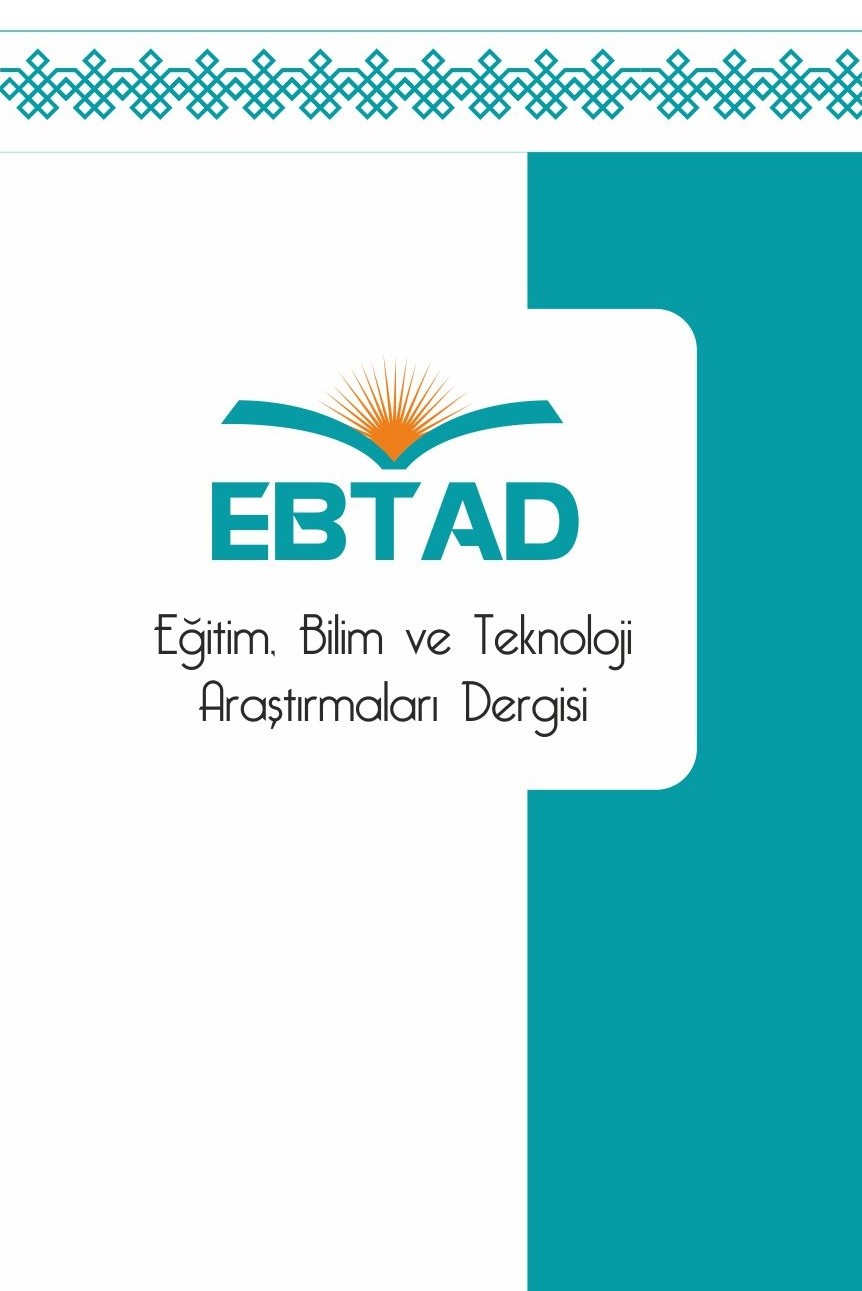Teknoloji Öğretmen Eğitimi Çeşidi ve Sayısı ile Öğretmenlerin Algıları Arasındaki İlişki
Bu araştırmanın amacı, öğretmenlerin teknoloji kullanımına yönelik algılarının, teknolojik araç kullanımına yönelik destek algılarının ve teknolojik araçların erişimine yönelik algılarının aldıkları farklı teknoloji eğitimine (Fatih Projesi Teknoloji Eğitimi, Genel Teknoloji Eğitimi ve Kendi Kendine Öğrenme) ve farklı teknoloji eğitimi sayısına (1, 2 veya 3 tane eğitim alan) göre farklılaşma durumlarını araştırmaktır. Araştırma kapsamında toplamda 30 okulda çalışan 320 öğretmenden kullanılabilir ölçek verisi elde edilmiştir. Aldıkları farklı eğitim türlerine göre öğretmenlerin teknoloji kullanımına yönelik algılarında ve teknolojik araçların erişimine yönelik algılarında anlamlı bir fark bulunmuşken teknolojik pedagojik bilgi algılarında anlamlı bir fark bulunamamıştır. Diğer taraftan farklı teknoloji eğitimi sayılarına göre öğretmenlerin teknolojik pedagojik bilgi algılarında ve teknolojik araçların erişimine yönelik algılarında anlamlı bir fark bulunmuşken teknolojik araç kullanımına yönelik destek algılarında anlamlı bir fark bulunamamıştır.
Anahtar Kelimeler:
Öğretmen eğitimi, Teknolojik pedagojik bilgi, Teknoloji kullanımı, Teknolojiye erişim
The Relationship between Technology Teacher Education Type and Number and Teachers' Perceptions
The purpose of this study is to investigate the perceptions of teachers about technology use, support of use of technology tools and the access to technology tools according to types (Fatih Project Technology Education, General Technology Education and Self Learning) and number (one, two or three education). Within the scope of the study, available scale data were obtained from 320 teachers working in 30 schools. According to different types of education, there was a meaningful difference in the perceptions of teachers regarding the use of technology and the perceptions of access to technological tools, but no significant difference was found in the perceptions of technological pedagogical knowledge. On the other hand, according to different technological education numbers, there was a meaningful difference between teachers' perceptions of technological pedagogical knowledge and access to technological tools, but no significant difference was found in perceptions of support for technological tool use.
Keywords:
Teacher training, Technologic-pedagogic knowledge, Use of technology, Access to technology tools,
___
- Akkoyunlu, B. (1996). Öğrencilerin bilgisayara karşı tutumları. Eğitim ve Bilim, 20(100), 15-29.
- Baki, A. (1996). Matematik öğretiminde bilgisayar her şey midir? Hacettepe Eğitim Fakültesi Dergisi, 12, 139-149.
- Beichner, R. J. (1990). The effect of simultaneous motion presentation and graph generation in a kinematics lab. Jounal of Research in Science Teaching, 27, 803-815.
- Büyüköztürk, Ş. (2012). Sosyal bilimler için veri analizi el kitabı. Ankara: Pegem Akademi.
- Çakır, R., & Yıldırım, S. (2009). Bilgisayar öğretmenleri okullardaki teknoloji entegrasyonu hakkında ne düşünürler? İlköğretim Online, 8(3), 952-964.
- Dursun, F. (1999). Öğretmenlerin bilgisayar destekli öğretime ilişkin yeterlilikleri ve eğitim ihtiyaçlarının saptanması (Yayınlanmamış yüksek lisans tezi). Ankara Üniversitesi, Ankara, Türkiye.
- Erçelik, S. (2004). Sınıf öğretmenlerinin bilgisayar kullanımı ile ilgili tutumlarının incelenmesi (Yayınlanmamış yüksek lisans tezi). Marmara Üniversitesi, İstanbul, Türkiye.
- Gallegos, B., & ve Rillero, P. (1996). Bibliographic database competencies for preservice teachers. Journal of Technology and Teacher Education, 4(3/4), 231-249.
- Gülcü, A., Solak, M., Aydın, S., & Koçak, Ö. (2013). İlköğretimde görev yapan branş öğretmenlerinin eğitimde teknoloji kullanımına ilişkin görüşleri. Turkish Studies, 8/6, 195-213.
- Haydn, T., & Barton, R. (2007). Common needs and different agendas: How trainee teachers make progress in their ability to use ICT in subject teaching. Some lessons from the UK, Computers & Education, 49, 1018-1036.
- Kopcha, T. J. (2012). Teachers’ perceptions of the barriers to technology integration and practices with technology under situated professional development. Computers & Education, 59, 1109-1121.
- Norton, P., & Sprague, D. (1997). On-line collaborative lesson planning: An experiment in teacher education. Journal of Technology and Teacher Education, 5(2/3), 280-297.
- Oakes, J., & Martin, L. (2002). Struggling for educational equity in diverse communities: School reform as social movement. Journal of Educational Change, 3, 383-406.
- Öksüz, C., Ak, Ş., & Uça, S. (2009). İlköğretim matematik öğretiminde teknoloji kullanımına ilişkin algı ölçeği. Yüzüncü Yıl Üniversitesi Eğitim Fakültesi Dergisi, 6(1), 270-287.
- ÖYGM (2016). http://hedb.meb.gov.tr/net/_standart_program/index.php?dir=Mod%FCl+ Programlar%2F2.+Seviye+Mod%FCl+Programlar%2F sitesinden alınmıştır.
- Öztürk, E., & Horzum, M. B. (2011). Teknolojik pedagojik içerik bilgisi ölçeğinin Türkçe'ye uyarlaması. Ahi Evran Üniversitesi Eğitim Fakültesi Dergisi, 12(3), 255-278.
- Pelgrum, W. J. (2001). Obstacles to the integration of ICT in education: Results from a worldwide educational assessment. Computers & Education, 37(2), 163-178.
- Schrum, L. (1996). Rural telecommunications for educational professional development and instructional improvement. Journal of Technology and Teacher Education, 4(3/4), 247-263.
- Schrum, L.ve Dehoney, J. (1998). Meeting the future: A teacher education program joins the information age. Journal of Technology and Teacher Education, 6(1), 23-38.
- Sezer, E. (2006). Milli Eğitim Bakanlığına bağlı devlet okullarında çalışan psikolojik danışman ve rehber öğretmenlerin hizmetiçi eğitime ilişkin görüşlerinin değerlendirilmesi (İstanbul ili örneği) (Yayınlanmamış yüksek lisans tezi). Yeditepe Üniversitesi, Sosyal Bilimler Enstitüsü, İstanbul, Türkiye.
- Tannehill, D., Berkowitz, R., & LaMaster, K. (1995). Teacher networking through electronic mail. Journal of Technology and Teacher Education, 6(2/3), 119-137.
- Usluel, Y. K., Mumcu, F. K., & Demiraslan, Y. (2007). Öğrenme-öğretme sürecinde bilgi ve iletişim teknolojileri: Öğretmenlerin entegrasyon süreci ve engelleriyle ilgili görüşleri. Hacettepe Üniversitesi Eğitim Fakültesi Dergisi, 32, 164-178.
- Üngan, T. N. (2001). Bilgisayar kullanımına ilişkin öğretmen tutumlarının değerlendirilmesi (Yayınlanmamış yüksek lisans tezi). Atatürk Üniversitesi, Erzurum, Türkiye.
- ISSN: 2548-0286
- Başlangıç: 2016
- Yayıncı: Ahmet Oğuz AKTÜRK
Sayıdaki Diğer Makaleler
Kuvvet ve Hareket Ünitesi Başarı Testi Geçerlik ve Güvenirlik Araştırması
Özkan Akman, Emrah Berkant Patoğlu
Fen Bilgisi Öğretmen Adaylarının Bilgisayar Destekli Öğretim ile İlgili Görüşlerinin Belirlenmesi
Eğitim Ortamlarında Etkileşimli Tahta Kullanımı: Araştırmalar ve Eğilimler
Mustafa Tevfik HEBEBCİ, İsmail ÇELİK, İsmail ŞAHİN
Teknoloji Öğretmen Eğitimi Çeşidi ve Sayısı ile Öğretmenlerin Algıları Arasındaki İlişki
Ortaokul Öğrencilerin Modelleme Deneyimleri: Kağıttan Uçak Yapma Yarışması Problemi
